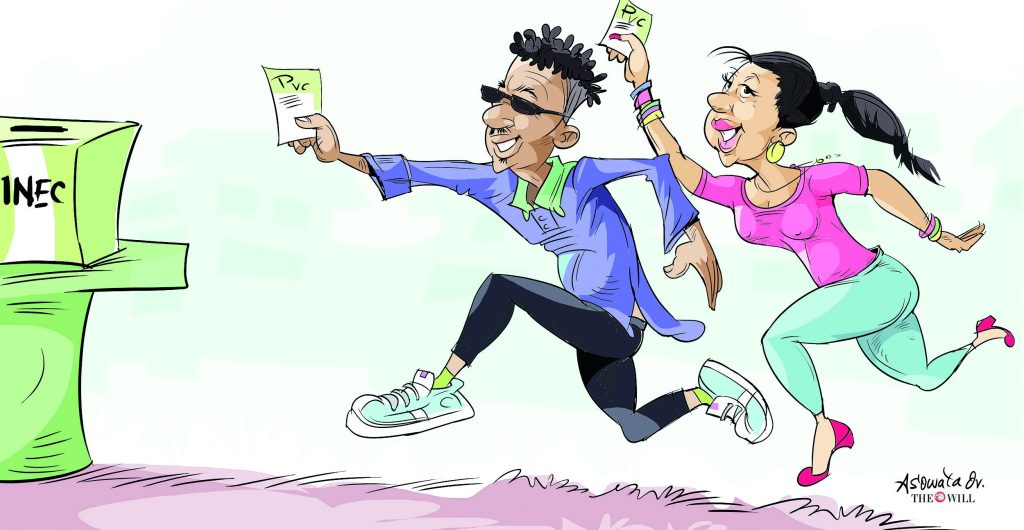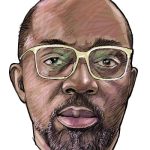With the general elections due to begin just about six weeks from now, there is a consensus amongst political watchers and analysts that voters between the ages of 18 and 34, who are about 37 million in number out of the 93 million registered voters, would likely determine the outcome of the Presidential and other elections in this circle. Another notable significant block with huge numbers amongst eligible voters who most times claim to be youths are middle-aged persons, those between the age brackets of 40 – 60, where I belong.
According to data released by the Independent National Electoral Commission, INEC, last week, there are now 93, 469, 000 total voters in the new register. This is a new record and this should worry the establishment because in 2019, the number was 84, 004, 084 while in 2015, INEC reported 68, 833, 746 registered voters. The number was 73, 528, 040 in 2011.
A breakdown of the current register showed that 49, 054, 162 (52.5%) are male voters and 44, 414, 846 (47.5%) are female. 37, 060, 399 (39.65%) are youths, followed by middle-aged persons with 33,413,591 (35.75%) while a deeper breakdown showed there are 26,027,481 (27.8%) students.

Though there have been reports of massive youth enthusiasm over the February 25, 2023 presidential election, this data from the electoral body robustly confirms that they are fired up and are participating in the electoral process. This is some good and comforting news because youths usually passively showed interest in elections because the results were mostly falsified. This election however appears to be different with INEC’s introduction of the Bimodular Voter Accreditation System (BVAS) and the Central Bank of Nigeria’s masterstroke redesign of the naira as well as the cap on cash withdrawals from bank accounts. These two key developments are very popular with voters, especially the young ones who have been clamouring for a change from the status quo.
Youth participation in elections globally is very critical for the democratic process because they represent the future. In Nigeria, it is even more important because of the poor state of affairs of the country which is supposed to be Africa’s powerhouse.
The youth population in Nigeria comprises a significant portion of the population and is a vital demographic indices in any election especially when they seem to now understand that elections matter. This is why I am calling out the youths (18-49), so they understand how immensely important it is for our tomorrow that they come out en masse to vote for credible candidates who will work for the betterment of the country. We have the power to shape the future of Nigeria, and it is crucial that we exercise this right irrespective of the challenges and difficulties we might encounter, to vote and make our voices heard.
We have witnessed the greatness and impact of our youths in sports, entertainment and even in Fintech and technology. We must keep faith and enter the political space with that enthusiasm, drive and passion because it is only through active participation in the democratic process that Nigeria can move to the next level of political leadership and economic development.

It is not surprising to see politicians and political parties recruiting young, savvy people to help with their political campaigns and advocacy. We have seen this in town hall meetings, youth forums and social media campaigns that have specifically targeted the youth population. Youths run the social media, we run the streets and yes, we can run this democracy if we do what we need to do. The time for the Nigerian youth has finally come ONLY if we vote and choose wisely.
The Not-Too-Young Act is a recent development that has reduced the eligibility for election into the Legislature at state and federal levels from 30 to 25 years and for the President of the Republic from 40 to 35 years. This move is part of a broader youth campaign that has been ongoing for some time, with advocates pushing for increased representation of young people in politics. The campaign has been driven by a desire to see a new generation of leaders step forward and take the reins of power, with inspiration drawn from the examples of young leaders around the world.
One notable example is Emmanuel Macron, who became President of France at the age of 40, overtaking David Cameron who had become Prime Minister of the United Kingdom at the age of 43. Another example is Jacinda Ardern, the 42-year-old Prime Minister of New Zealand who gave birth while in office, becoming only the second world leader to do so. Additionally, at 31, Sebastian Kurz became the Chancellor of Austria.
In Nigeria, during the good old days, young people laboured and laid the foundation for the country we love so dearly. Matthew Mbu was only 23 years old when he became the Minister of Labour and Productivity, and later the first ever Nigerian Ambassador to the Court of St. James in the United Kingdom. Lt.-Col. (later General) Yakubu Gowon became Head of State at 31. Chief Obafemi Awolowo wrote his famous book, Path to Nigerian Freedom, in 1947 at the age of 38, founded Action Group at 41, and became leader of Government Business at 42. He and Sir Ahmadu Bello became Premier of their respective Regions at 45. Dr. Nnamdi Azikwe had by 1947, at the age of 43, become a Member of Legislative Council in Lagos; Member, Western House of Assembly at 48 and Premier of Eastern Region at 50. He had been editor of a national newspaper in Ghana at 30. At the age of 31, Sir Tafawa Balewa had founded Bauchi Discussion Group and at 36 had become a Member of the Northern House of Assembly. At 40 he became Minister of Works and Prime Minister at 45. General Ibrahim Babangida was 44 when he seized power from General Muhammadu Buhari, who was 43 years old then having seized power at 41 in 1983, when himself and other coup plotters sacked the democratically elected government of President Shehu Shagari.
Sadly, there are no youths in strong contention in the presidential race. The top four contenders are Peter Obi (61) of the Labour Party, Rabiu Kwankwaso (66) of the New Nigeria Peoples Party (NNPP), Bola Tinubu (70) of the ruling All Progressives Congress (APC) and Atiku Abubakar (76) of the Peoples Democratic Party (PDP).
With youth unemployment hovering around 40% and millions of persons living in acute poverty, I am certain that our youths understand what is at stake on the ballot in February when they cast their votes. February 25, 2023 is the day for the real Soro Soke (meaning Speak up), a slogan that resonated during the massive #ENDSARS protests against police brutality that rocked many major cities.
If Nigeria gets its elections right and sorts its leadership problem then Africa, especially the West African sub-region, where military coups have destabilised some countries, would take a cue.




